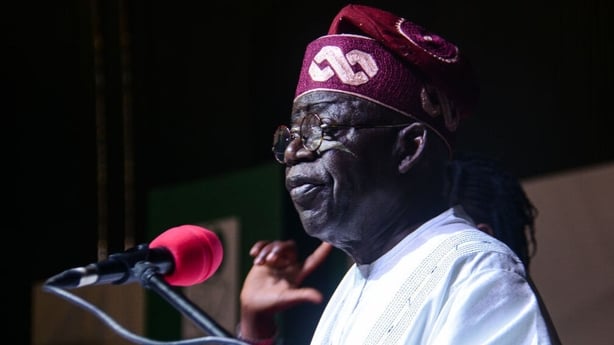Nigerian presidential candidate Peter Obi has said that he had won last Saturday's election, called Bola Tinubu's victory fraudulent and promised to secure the top job through legal means.
Mr Tinubu, the ruling party candidate, was declared president-elect of Africa's most populous nation yesterday, having won 37% of the vote.
He said the election was credible and the reported problems had had no impact on the overall outcome.
The main opposition candidate, Atiku Abubakar, who came second with 29% of the vote, also said later in the day that he would challenge the result in court as fraudulent.
Mr Obi, an outsider popular with young and educated urban voters, got 25%, according to the Independent National Electoral Commission (INEC).
"Let me assure all Nigerians that we will explore all legal and peaceful options to reclaim our mandate," Mr Obi, told a news conference in the capital Abuja, making his first public remarks since he cast his ballot on Saturday.
"We won the election and we will prove it to Nigerians," the 61-year-old said.
The opposition parties said the vote had been rigged after new technology that INEC had promised would make the process more transparent instead malfunctioned, eroding trust.
"The good and hardworking people of Nigeria have again been robbed by our supposed leaders," said Mr Obi.
He did not go into further detail on his accusations, saying evidence would be presented in court.

There have been numerous legal challenges to the outcome of past Nigerian presidential elections but none has succeeded.
The row over the election comes as Nigeria is struggling with Islamist insurgencies, an epidemic of kidnappings for ransom, conflicts between farmers and herders, high inflation, widespread food insecurity and a shortage of cash that has caused chaos in people's daily lives.
"The weekend election was neither free nor fair," Mr Atiku told journalists, adding that he would contest the results in court.
"The processes and outcome (were) grossly flawed and must be challenged by all of us."
Record low turnout in vote - INEC
Both candidates questioned figures showing a low turnout at a time when there was a record number of registered voters.
INEC said total votes cast were just under 25 million, out of 87 million people with voter identity cards and eligible to vote, giving a turnout rate of 29%.
Mr Tinubu was declared the winner with 8.79 million votes. Nigeria has a population of more than 200 million.
Election observers from the European Union and the Commonwealth reported a range of problems with the election including widespread technical failures of systems designed to prevent manipulation and improve transparency. They criticised INEC for poor planning but did not allege fraud.
Nigeria has a long history of political violence, although the atmosphere has mostly been calm in the aftermath of the disputed vote.
"I appeal to all Nigerians to remain peaceful, law-abiding and conduct themselves in a responsible manner," said Mr Obi.
Mr Tinubu has already received congratulations from several foreign leaders including British Prime Minister Rishi Sunak, Nigeria's former colonial ruler and one of its closest diplomatic allies.
UK Foreign Secretary James Cleverly, also congratulated Mr Tinubu, while calling on the Nigerian authorities to examine all concerns carefully and take action to resolve outstanding issues.
INEC issued a statement today dismissing media reports that the problems with one of its new tools - a secure portal for transmitting and viewing results - were part of a vote-rigging plan.
"It is ... inconceivable that the commission will turn around and undermine its own innovations. The public is advised to ignore the reports," it said.
Mr Obi's social media campaign and position as a challenger to the two parties that have alternated in power since the end of army rule in 1999 won him a devoted following among young voters calling themselves the Obidients.
Mr Tinubu, a former governor of Lagos, and Mr Abubakar, a former vice president, were both seen as establishment candidates. While neither generated the visible enthusiasm directed at Mr Obi, both had powerful political machines and decades of networking behind them.
The challenge from Mr Obi had appeared to throw the contest wide open, raising some voters' hopes for change after years of worsening hardship and violence under outgoing President Muhammadu Buhari, 80, a former army general.

